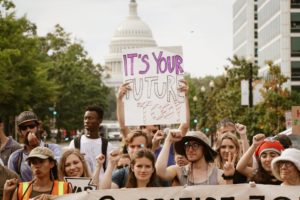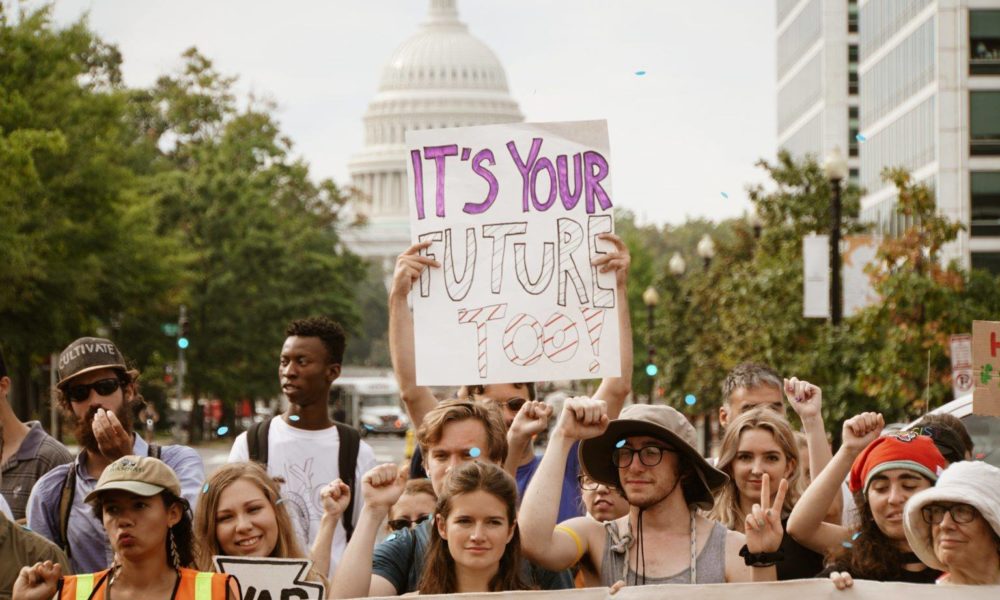
There are two life-altering crises facing our world today: the continuance of the COVID-19 pandemic with the rise of the Delta variant, and the increasing climate change chaos that is already here and will continue to worsen quickly if we don’t take transformative action. The UN Intergovernmental Panel on Climate Change spelled out the severity of the climate crisis in no uncertain terms in their August 2021 report, indicating that the planet is warming faster than expected. We will continue to see disastrous side effects, such as greater and more frequent wildfires, floods, hurricanes, droughts, and water and food scarcity. Both of these crises intersect with our health, environment, and racial equity.
This summer, Congress worked on two pieces of legislation that can facilitate the transformative action we need to address both of these crises. Those being a large infrastructure package in response to President Biden’s American Jobs Plan and a budget resolution that includes reconciliation instructions to increase spending to $3.5 trillion.
Why are these two legislative items so important to the future of our state, our nation, and our world? The infrastructure package provides a once-in-a-generation investment in roads, railways, public transportation, water systems, energy and internet broadband — all things we need to significantly cut the nation’s contribution to climate change and to provide equitable access to healthy environments. The budget resolution legislation provides the opportunity to increase funding for critical programs that not only address climate change but make our food system safer — in part helping to protect us from the global spread of viruses through our food supply chain. These critical programs include:
- agriculture and forestry conservation funding to build soil health and sequester carbon
- Food system investments for historically excluded populations, particularly farmers of color
- investments in local and regional food systems that can help communities create a food environment that speaks to their local food needs, that acknowledges the unique landscape in which they live and facilitates farming in a way that builds soil carbon and will be more resilient to more frequent extreme weather events
MCE has been working with our partners nationwide through the National Sustainable Agriculture Coalition and the Mississippi River Network to advocate for policy changes that provide the infrastructure we need to be a carbon neutral society and to protect us from climate change.
Both of these goals require advancements in renewable energy, public transportation, and sustainable agriculture. We are hopeful we can persuade Congress to make the investments necessary through these two pieces of legislation to leave a legacy of security and sustainability for Missouri, the nation, and the world.
We cannot do this work without you. Your advocacy and financial support are critical now more than ever. The next 18 months will be the most important window to invest in once-in-a-generation transformative action by Congress. We need to see that these two bills pass this fall. After that, MCE will be working on the 2023 Farm Bill. The funding provided to the important Farm Bill programs we care about will be influenced in part by the budget resolution passed this fall — if major increases are prioritized in the budget resolution, those programs will have a greater chance of increased funding to reach more people in the 2023 Farm Bill. Please support us today to ensure that we can do all we can to make our federal policy priorities a reality. This includes funding to help us communicate the time sensitive advocacy actions we will need Missourians to take over the next 18 months to ensure a sustainable, equitable, transformative 2023 Farm Bill. You can sign up to be emailed on when to take action at https://moenvironment.org/signup-elerts/.

